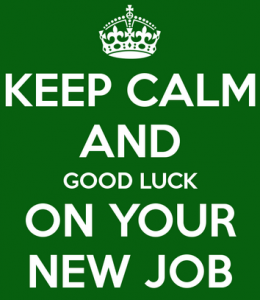 These days it’s becoming more common for people to change their careers after spending some time in the workforce. When you have 5, 10, or more years in one field but are now embarking on a new field, how do you transition? How do you establish your credibility in your new field when you have not been in the new field for very long? This was the question that someone asked me recently.
These days it’s becoming more common for people to change their careers after spending some time in the workforce. When you have 5, 10, or more years in one field but are now embarking on a new field, how do you transition? How do you establish your credibility in your new field when you have not been in the new field for very long? This was the question that someone asked me recently.
Ideally, you have some talent and competence in your new area that you can use to sell yourself. Testimonials, favourable reviews, and awards can help you to demonstrate that you’re good at what you now do (or want to do). If you plan to work for yourself in your new field, you may need to offer your services at a discounted rate for a little while so that you can get some people to try your service and then vouch for you. Similarly, if you take a job in the new area, you may need to start at a more junior level to get your foot in the door.
As you transition from field A to field B, it’s probably worth highlighting some of the common elements and skills that link the two fields. Also, if the new field is based on interests that you’ve had for a while during the time that you worked in your original area, it’s a good idea to highlight those interests (i.e., as a link between old and new) during your transition since it may help you to establish a longer history in your new area.
Other useful tools when you’re in transition are your resume and your LinkedIn profile. Naturally, you’ll need your resume to apply for jobs but sometimes your LinkedIn profile will catch a recruiter’s eye and you’ll be contacted regarding employment opportunities that you may not hear about otherwise. If your new area of expertise is something that you’re trying to establish as a consultant or in your own business, LinkedIn can be especially important. Your new potential clients will probably do some research online or may look for you online and when they find you, it’s important that they find information about you that is credible and makes you look like a good candidate/service provider.
Need help dealing with a delicate or high-stakes career or HR issue? I invite you to contact me privately. I offer a free 15-minute initial consultation by phone. Or, if you prefer, you can contact me by email, or via direct message on Twitter, Facebook, or LinkedIn.
More than career coaching, it’s career psychology®.
I/O Advisory Services – Building Resilient Careers and Organizations.™
Easily share this article using any of the social media icons below.



